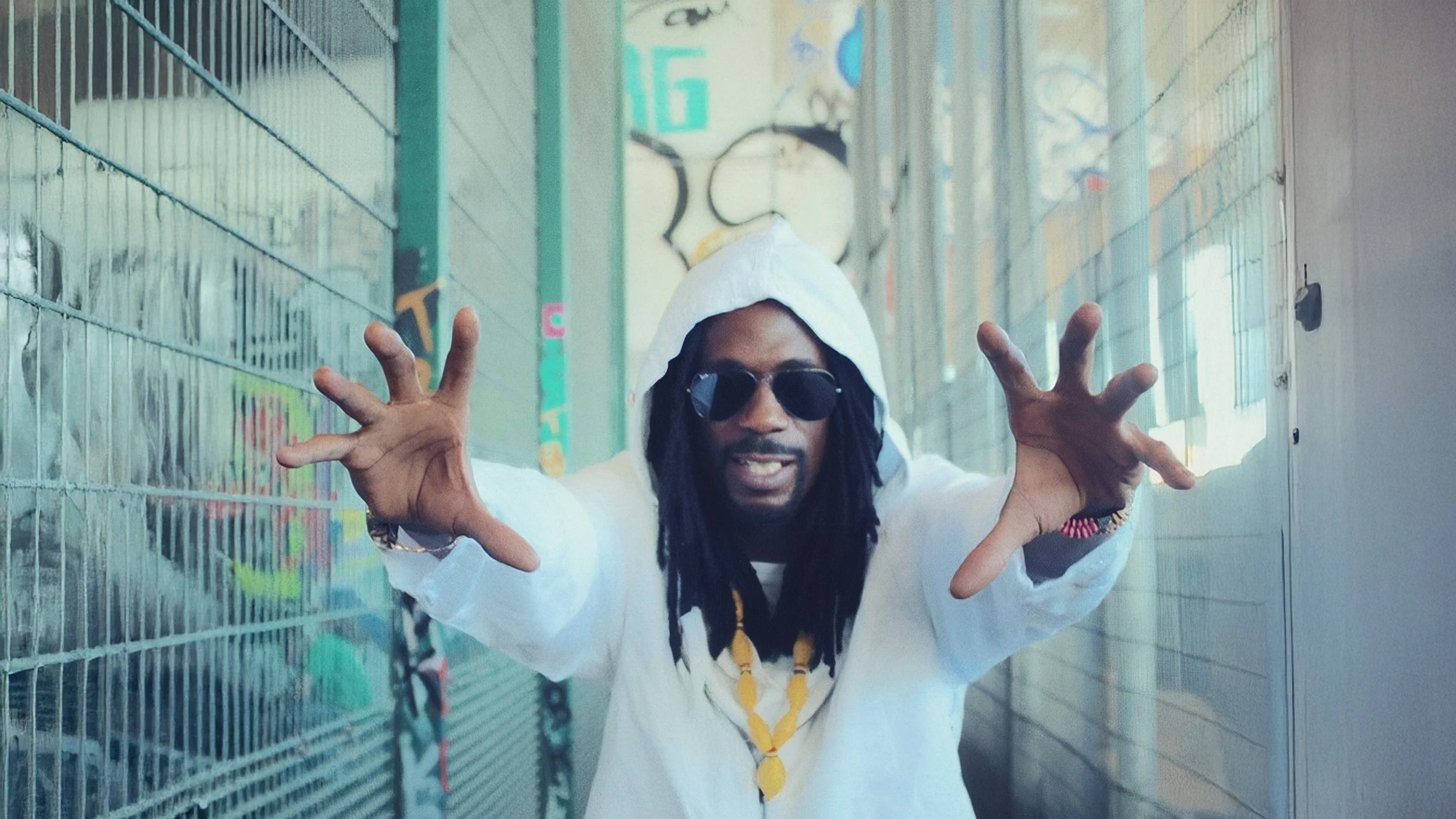
General Levy
Name & Pronunciation: Paul Scott “General” Levy - pronounced GEN-ər-uhl LEV-ee
Years Active & Status: 1988 to Present (active)
Origin & Heritage: London, England (born Park Royal / grew up in Harlesden & Wembley) - of Trinidadian descent and raised within a multicultural West Indian / African / Asian diasporic community in northwest London.
Hook: A firebrand ragga MC turned jungle and drum & bass icon, General Levy bridged the worlds of reggae, dancehall, and UK bass music in the 1990s and beyond — his voice, energy, and fearless crossover spirit remain a galvanizing force in ReggaeEDM culture.
Motto/Tagline: “Positive upliftment and real education” (often invoked in his live shows and public persona)
BIOGRAPHY
Paul Levy was born in 1971 at Central Middlesex Hospital in northwest London and spent his childhood in the vibrant multicultural neighborhoods of Harlesden and Wembley. His older brother Winston Irie exposed him early to a wide sonic palette - ska, rocksteady, calypso, soul, hip hop, reggae — embedding in him a deep respect for musical roots and rebellious voices. From a young age he was engrossed in sound system culture and the militant edge of ‘rebel music’.
By the age of twelve he began writing lyrics, and by fourteen he and friends launched their own sound system called Third Dimension. Over time he took part in local London systems such as Vigilante, Java, and TipperTone, building a reputation for lyrical agility, creative phrasing, and magnetic stage presence. His early studio output emerged in underground dancehall circles, working with producers such as Lloydy Crucial and Robbo Ranx, eventually connecting with Fashion Records and their in‑house producer Gussie P.
Levy’s mainstream breakthrough came in 1994 through a collaboration with jungle producer M‑Beat on the track “Incredible.” The song became one of the first jungle tunes to enter the UK Top 10, bringing Levy’s voice and style to a broader audience. The success was not without friction - a bold remark about “running jungle” stirred controversy within the underground community, creating tension before the track ultimately became canonized. Through that era, he navigated between rave, reggae, and dancehall spheres with boldness.
Over subsequent decades he has continued straddling genres — from reggae and dancehall to drum & bass, jungle, and hybrid electronic sounds. He has collaborated with artists like Capleton, Joe Ariwa, Chase & Status, Spragga Benz, and more, and also launched his own label GLM Records. His career reflects both deeply rooted reggae sensibility and a willingness to push boundaries.
REGGAEEDM ANALYSIS
Reggae Roots
Rhythm: Levy often uses classic reggae and dancehall syncopation, layering generous offbeat skanks over more aggressive breakbeat frames. He retains the swing and bounce of reggae in phrasing and groove.
Bass: He honors deep, prominent bass lines native to reggae and dub by weaving them into heavier jungle or electronic contexts, allowing the low end to carry weight without losing roots warmth.
Vocals/Message: His vocal style is characterized by rapid delivery, staccato articulation, and a “hiccup” effect. His lyrical themes balance dancehall bravado with consciousness, resistance, and street commentary.
Electronic/EDM Techniques
Sampling & Vocal Processing: He adapts his voice to electronic forms, using delay, reverb, and time quantization to sync with breakbeats while retaining rhythmic integrity.
Hybrid Arrangement: He blends arrangement techniques, combining reggae intro sections with jungle drops or EDM builds, shifting drums and bass patterns mid‑track.
Bass Integration: He experiments with sub bass layering and sidechain dynamics in jungle/dnb settings while keeping roots bass character audible.
Essential Works & What to Listen For
“Incredible” (1994): His defining crossover track with M‑Beat - listen for the interplay of jungle drums and his energetic vocal hook.
Double Trouble (1992): A reggae / dancehall album which shows his roots grounding before jungle fusion.
The Wickeder General (1992): Early solo statement capturing his dancehall/reggae voice before full jungle adoption.
Wickedness Increase (1993): A bridge record that begins to hint at more aggressive energy integrated into his reggae base.
We Progressive (2011): A later period work that embraces hybrid collaborations and modern bass textures.
Influence on ReggaeEDM
Innovations: He helped demonstrate that an MC from dancehall and reggae origins could successfully cross into jungle and drum & bass realms without losing authenticity. His “hiccup” MC technique influenced many later jungle/reggae MCs.Impact: Many UK and global artists cite Levy’s bold bridging of reggae and electronic bass as a template for genre fusion. His bridging role helped pave more openness in ReggaeEDM collaborations between roots voices and bass producers.
RECOMMENDED ALBUMS
Double Trouble (1991)
Spotify: Not Available
Key tracks: “Original Length & Strength,” “Heat,” “Champagne Body”
Notes: A foundational album bridging his dancehall/reggae roots with early experiments that precede jungle crossoverThe Wickeder General (1992)
Spotify: Not Available
Key tracks: “The Wickeder General,” “Mr Push It Good,” “Monkey Man”
Notes: Solidifies his solo voice in the reggae/dancehall world before his jungle eraWickedness Increase (1993)
Spotify: https://open.spotify.com/album/31AWmv5qMkTzNQra5e94Vk?si=qBCwW1mAS7mq5-nx9gQNfA
Key tracks: “Champagne Body,” “Heat,” “Wickedness Increase”
Notes: A record that leans harder into dancehall energy and sets the stage for his genre pivotWe Progressive (2011)
Spotify: https://open.spotify.com/album/0duH4SfED1mSyD5oizcq2K?si=vACKfzq4Sx-tyZQTFy7AdA
Key tracks: “We Progressive,” “Pull Up,” “Flex”
Notes: A later period album featuring cross‑genre collaborations and modern bass integratio







